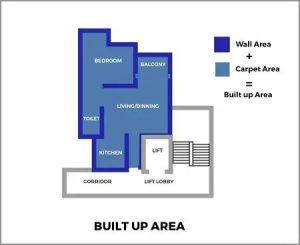In a fast-paced world where financial commitments are a part of everyday life, missing an EMI payment—particularly a home loan EMI—can be stressful and full of consequences. In India, home loans are often the largest monthly financial burden a person carries. When an EMI bounces, it isn’t just a missed payment; it could affect your credit score, lead to penalty charges, and even bring legal consequences if ignored persistently.
This blog serves as your comprehensive guide to understanding what an EMI bounce is, why it happens, what immediate and long-term steps you should take, and how to avoid it. We will also touch upon RBI guidelines for EMI bounce charges, how such incidents affect your CIBIL score, and what you can do if you are struggling to make payments on time. Let’s dig deep.
What Is EMI Bounce and Why Does It Happen?

EMI bounce refers to a situation where the borrower fails to pay the Equated Monthly Instalment (EMI) due to insufficient funds, technical issues, or bank errors.
Common causes for EMI bounce:
- Inadequate bank balance on the debit date
- Technical issues with auto-debit or ECS
- Closed a bank account or changed the account without updating the lender
- Salary delays
- Overspending or poor financial planning
This phenomenon isn’t unique to home loans; what happens if personal loan EMI bounces follows a similar process, but the stakes are often higher for home loans because of the asset involved.
What Are the Immediate Consequences of an EMI Bounce?

A single EMI bounce has multiple effects, both financial and reputational.
Immediate consequences include:
- EMI bounce charges levied by the lender (usually Rs 300 to Rs 700 or more)
- Bank charges for ECS return or cheque bounce (Rs 200 to Rs 500)
- Negative entry in CIBIL and credit report
- Follow-up calls or notices from the lender
So, what is the penalty for EMI bounce? The penalty is twofold: a flat EMI bounce charge and a late payment interest on the overdue amount. Some lenders charge up to 2% per month as overdue interest.
How Does EMI Bounce Affect Your CIBIL Score?

One of the major concerns after an EMI bounce is its impact on your creditworthiness.
EMI Bounce Affect on CIBIL:
- A single missed EMI can lower your CIBIL score by 30 to 50 points
- Multiple misses can label you as a defaulter
- A poor credit score makes it harder to avail of loans in the future or increases interest rates
Thus, if you’re wondering Can I pay EMI after the due date?—Yes, you can, but it should be done immediately to limit damage to your credit profile.
What Happens If a Home Loan EMI Is Missed in India?

Missing a home loan EMI, especially repeatedly, has severe repercussions.
What happens if a home loan is not paid in India?
- First EMI miss: Charges applied, lender will notify you
- Second or third miss: Loan classified as Special Mention Account (SMA)
- More than 90 days overdue: Loan turns into NPA (Non-Performing Asset)
- Recovery actions begin, including legal notices and auctioning the mortgaged property
The longer the delay, the harder it gets to recover your financial footing.
Can We Skip Home Loan EMI for a Few Months Without Penalty?
In certain conditions, yes. Borrowers can request temporary relief from EMI payments.
Can we skip the home loan EMI for a few months?
- During moratorium periods (like COVID), the RBI allowed skips without penalty
- Some banks offer grace periods or restructuring options
- However, interest continues to accumulate during the skipped period
The better question would be: How can I skip EMI for 3 months? Contact your lender directly and apply for EMI deferment citing valid reasons (job loss, medical emergency, etc.). Approval is at their discretion.
What Are RBI Guidelines for EMI Bounce Charges in 2025?

RBI guidelines for EMI bounce charges are designed to ensure fair treatment of borrowers.
Key highlights of RBI’s updated guidelines:
- Charges must be disclosed at the time of the loan agreement
- Must be reasonable and non-exploitative
- Should not lead to usurious practices
- Penalties must be proportionate to the default
Hence, borrowers should always read the fine print before signing a loan document.
What to Do If You’ve Already Missed an EMI Payment?
Here’s a step-by-step plan:
- Do not panic – One bounce isn’t the end of the world
- Check your bank balance and account status
- Immediately clear the missed EMI, along with any charges
- Inform the lender and clarify the reason for the bounce
- Set up alerts or auto-debits to prevent future incidents
- If facing a genuine financial crunch, ask for loan restructuring
- Request to convert the loan into EMI on a credit card temporarily, if allowed
- Consider part-prepayment if you come into extra funds later
Can We Skip Home Loan EMI for One Month in India?
Yes, but it’s not automatic.
Can we skip the home loan EMI for one month?
- Only if the lender allows it via a moratorium request
- Additional interest will apply
- Your credit score may still be impacted unless formally approved
This is different from just missing an EMI. Proactive communication is key.
What Are Home Loan EMI Bounce Charges and How Are They Calculated?

Home loan EMI bounce charges vary depending on your lender and the nature of the payment.
Components of the charge include:
- EMI bounce penalty (Rs 300–1000 approx.)
- Late payment interest (1%–2% per month)
- Bank penalty (Rs 200–500 for ECS failure)
- GST on these charges
These are different from personal loan EMI bounce charges, which may have slightly lower thresholds.
What Preventive Measures Can You Take to Avoid EMI Bounce?
- Always maintain sufficient balance in your loan repayment account
- Set up reminders a week before EMI due dates
- Enable auto-debit and link it to your salary account
- Keep a 2-month buffer amount in your account
- Communicate early with your bank if you anticipate payment issues
- Consider loan insurance for unexpected events
- Review your EMIs and reduce tenure if overburdened
Conclusion
Missing a home loan EMI in India can cause ripple effects, from financial penalties and credit score reduction to potential property repossession. While occasional slips may be manageable, repeated EMI bounces should be treated as serious red flags in your financial life.
If you’re someone who’s already in a debt spiral, proactive measures like loan restructuring, balance transfer, or even financial counselling can be a game-changer. For others, preventive practices and financial discipline are key to staying out of trouble.
At Housiey, we not only help you find your dream home but also empower you with the right knowledge to navigate your financial journey smartly.
For more insights into property ownership laws, don’t forget to check out our latest blog on the “Karnataka Apartment Ownership Act.”
FAQs
In a fast-paced world where financial commitments are a part of everyday life, missing an EMI payment—particularly a home loan EMI—can be stressful and full of consequences. In India, home loans are often the largest monthly financial burden a person carries. When an EMI bounces, it isn’t just a missed payment; it could affect your credit score, lead to penalty charges, and even bring legal consequences if ignored persistently.
This blog serves as your comprehensive guide to understanding what an EMI bounce is, why it happens, what immediate and long-term steps you should take, and how to avoid it. We will also touch upon RBI guidelines for EMI bounce charges, how such incidents affect your CIBIL score, and what you can do if you are struggling to make payments on time. Let’s dig deep.
What Is EMI Bounce and Why Does It Happen?

EMI bounce refers to a situation where the borrower fails to pay the Equated Monthly Instalment (EMI) due to insufficient funds, technical issues, or bank errors.
Common causes for EMI bounce:
- Inadequate bank balance on the debit date
- Technical issues with auto-debit or ECS
- Closed a bank account or changed the account without updating the lender
- Salary delays
- Overspending or poor financial planning
This phenomenon isn’t unique to home loans; what happens if personal loan EMI bounces follows a similar process, but the stakes are often higher for home loans because of the asset involved.
What Are the Immediate Consequences of an EMI Bounce?

A single EMI bounce has multiple effects, both financial and reputational.
Immediate consequences include:
- EMI bounce charges levied by the lender (usually Rs 300 to Rs 700 or more)
- Bank charges for ECS return or cheque bounce (Rs 200 to Rs 500)
- Negative entry in CIBIL and credit report
- Follow-up calls or notices from the lender
So, what is the penalty for EMI bounce? The penalty is twofold: a flat EMI bounce charge and a late payment interest on the overdue amount. Some lenders charge up to 2% per month as overdue interest.
How Does EMI Bounce Affect Your CIBIL Score?

One of the major concerns after an EMI bounce is its impact on your creditworthiness.
EMI Bounce Affect on CIBIL:
- A single missed EMI can lower your CIBIL score by 30 to 50 points
- Multiple misses can label you as a defaulter
- A poor credit score makes it harder to avail of loans in the future or increases interest rates
Thus, if you’re wondering Can I pay EMI after the due date?—Yes, you can, but it should be done immediately to limit damage to your credit profile.
What Happens If a Home Loan EMI Is Missed in India?

Missing a home loan EMI, especially repeatedly, has severe repercussions.
What happens if a home loan is not paid in India?
- First EMI miss: Charges applied, lender will notify you
- Second or third miss: Loan classified as Special Mention Account (SMA)
- More than 90 days overdue: Loan turns into NPA (Non-Performing Asset)
- Recovery actions begin, including legal notices and auctioning the mortgaged property
The longer the delay, the harder it gets to recover your financial footing.
Can We Skip Home Loan EMI for a Few Months Without Penalty?
In certain conditions, yes. Borrowers can request temporary relief from EMI payments.
Can we skip the home loan EMI for a few months?
- During moratorium periods (like COVID), the RBI allowed skips without penalty
- Some banks offer grace periods or restructuring options
- However, interest continues to accumulate during the skipped period
The better question would be: How can I skip EMI for 3 months? Contact your lender directly and apply for EMI deferment citing valid reasons (job loss, medical emergency, etc.). Approval is at their discretion.
What Are RBI Guidelines for EMI Bounce Charges in 2025?

RBI guidelines for EMI bounce charges are designed to ensure fair treatment of borrowers.
Key highlights of RBI’s updated guidelines:
- Charges must be disclosed at the time of the loan agreement
- Must be reasonable and non-exploitative
- Should not lead to usurious practices
- Penalties must be proportionate to the default
Hence, borrowers should always read the fine print before signing a loan document.
What to Do If You’ve Already Missed an EMI Payment?
Here’s a step-by-step plan:
- Do not panic – One bounce isn’t the end of the world
- Check your bank balance and account status
- Immediately clear the missed EMI, along with any charges
- Inform the lender and clarify the reason for the bounce
- Set up alerts or auto-debits to prevent future incidents
- If facing a genuine financial crunch, ask for loan restructuring
- Request to convert the loan into EMI on a credit card temporarily, if allowed
- Consider part-prepayment if you come into extra funds later
Can We Skip Home Loan EMI for One Month in India?
Yes, but it’s not automatic.
Can we skip the home loan EMI for one month?
- Only if the lender allows it via a moratorium request
- Additional interest will apply
- Your credit score may still be impacted unless formally approved
This is different from just missing an EMI. Proactive communication is key.
What Are Home Loan EMI Bounce Charges and How Are They Calculated?

Home loan EMI bounce charges vary depending on your lender and the nature of the payment.
Components of the charge include:
- EMI bounce penalty (Rs 300–1000 approx.)
- Late payment interest (1%–2% per month)
- Bank penalty (Rs 200–500 for ECS failure)
- GST on these charges
These are different from personal loan EMI bounce charges, which may have slightly lower thresholds.
What Preventive Measures Can You Take to Avoid EMI Bounce?
- Always maintain sufficient balance in your loan repayment account
- Set up reminders a week before EMI due dates
- Enable auto-debit and link it to your salary account
- Keep a 2-month buffer amount in your account
- Communicate early with your bank if you anticipate payment issues
- Consider loan insurance for unexpected events
- Review your EMIs and reduce tenure if overburdened
Conclusion
Missing a home loan EMI in India can cause ripple effects, from financial penalties and credit score reduction to potential property repossession. While occasional slips may be manageable, repeated EMI bounces should be treated as serious red flags in your financial life.
If you’re someone who’s already in a debt spiral, proactive measures like loan restructuring, balance transfer, or even financial counselling can be a game-changer. For others, preventive practices and financial discipline are key to staying out of trouble.
At Housiey, we not only help you find your dream home but also empower you with the right knowledge to navigate your financial journey smartly.
For more insights into property ownership laws, don’t forget to check out our latest blog on the “Karnataka Apartment Ownership Act.”
FAQs












